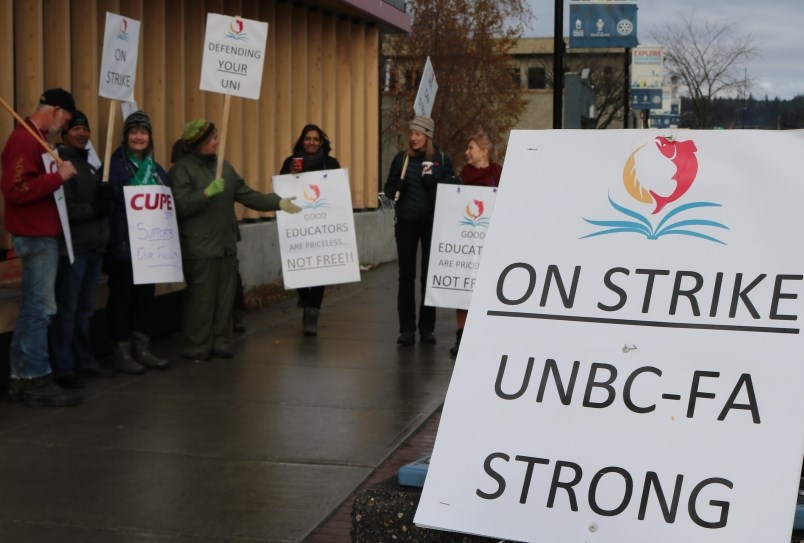Administration and faculty at the University of Northern British Columbia have agreed to take their differences to "final offer selection arbitration," UNBC said in statement posted late Tuesday on its website.
In doing so, the sides have taken the advice of special mediator Trevor Sones, appointed by the provincial government last month to try and find ways to break the deadlock.
Under the process, the arbitrator to selects between the parties' best and final offers and without the ability to 'split the difference' between the two.
The sides have until Jan. 3 to agree on a third-party arbitrator and the hearing process is to start by Feb. 1 unless the parties mutually agree to extend that deadline
In agreeing to the move, the UNBC Faculty Association has ended its job action. Its roughly 180 members had waged a three-week strike in November that ended only after the FA filed a complaint with the Labour Relations Board alleging administration had been bargaining in bad faith. Since then, they have been refusing to perform duties beyond holding lectures and working with students.
"By and large, we're all very relieved," UNBC FA president Stephen Rader said Wednesday. "It's so nice to know that we are not going to be back out on the picket lines."
He said the sides agreed to compromises Sones proposed on the non-monetary articles that had not been signed off yet and the arbitrator will choose between the packages the respective sides will offer on compensation.
Sones recommended a similar process in 2015. The move put an end to a two-week strike in March and a deal was reached in December.
On whether the complaint of bad-faith bargaining will be pursued, Rader said the FA is waiting for advice from its legal counsel and that should be received by the end of this week.
"Personally, I don't see any reason why that wouldn't still go ahead," he said. "If the employer was engaging in bad-faith bargaining, it's important that we and other people know that. The Board of Governors, for example, ought to know that their bargaining team was engaging in bad faith bargaining, if in fact that's true."
UNBC president Daniel Weeks expressed relief at the latest development and said he hopes future bargaining will be "interest based" and less adversarial.
"The best news of it all is the job action ends the the students have some certainty about next semester," he said. "They know they can come back and not worry about there being picket lines or anything and they can focus on their studies, that's really what we're all about."



